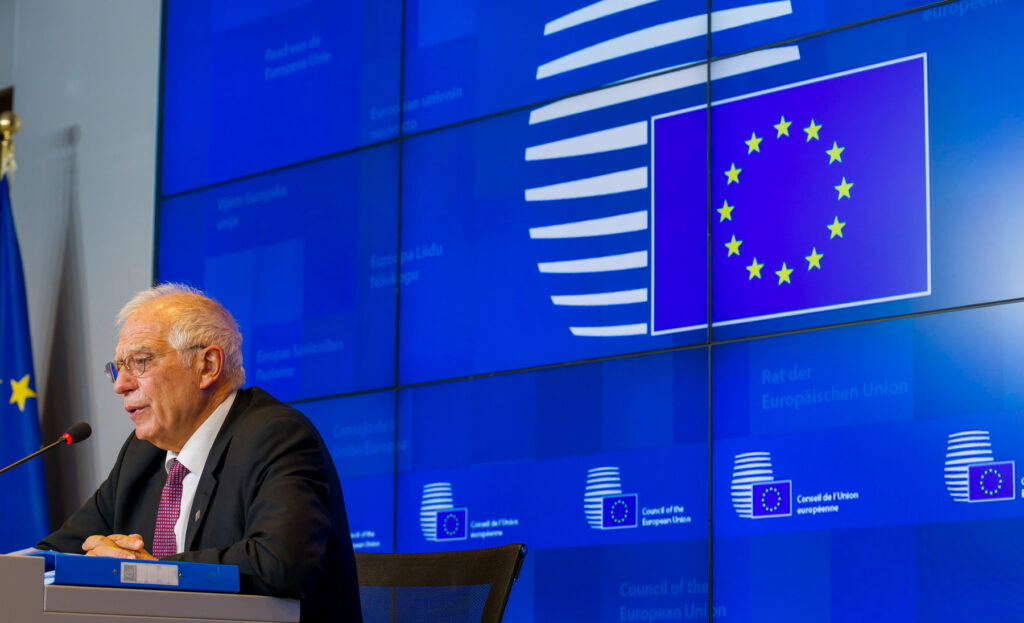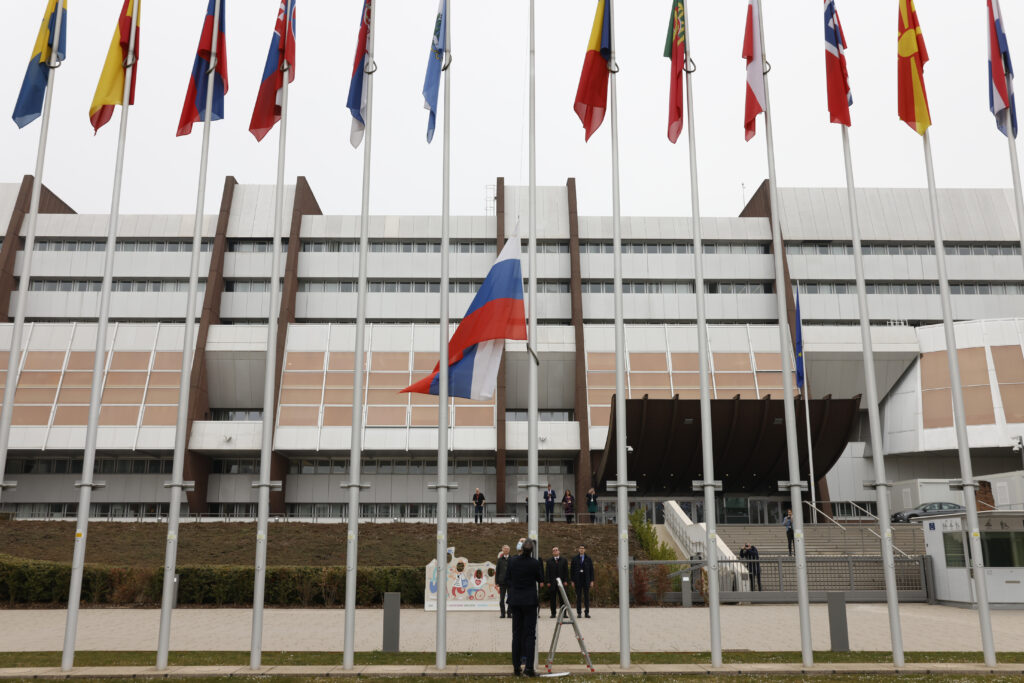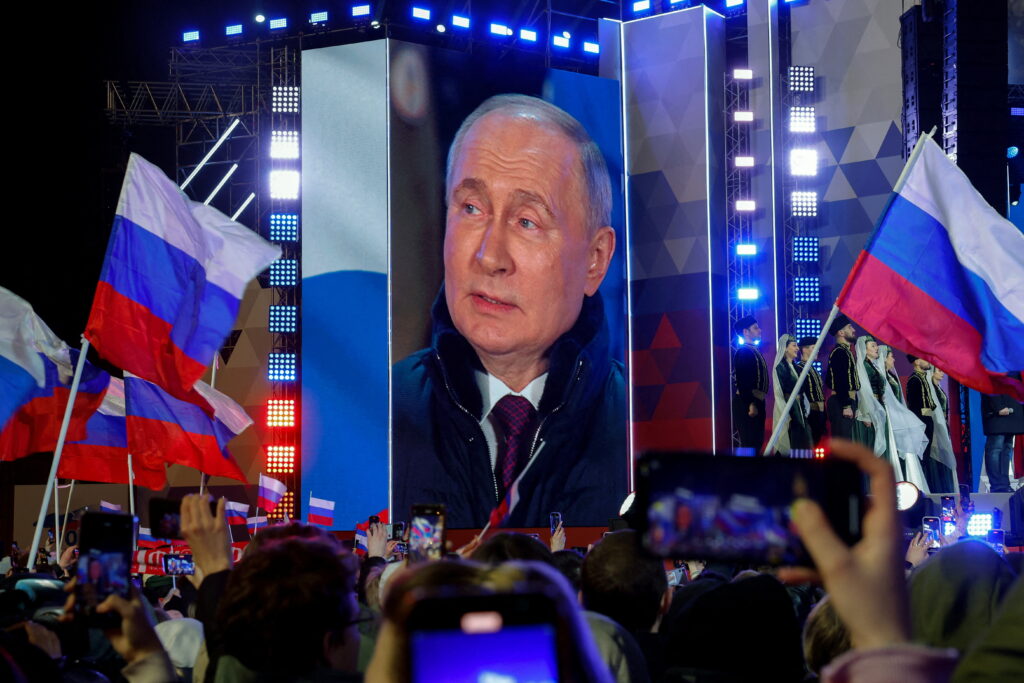On October 15, 2020, the European Union imposed sanctions against six high-ranking Russian officials in reaction to the poisoning of Alexei Navalny with a toxic substance from the Novichok group.
Who were the sanctioned six? FSB director Alexander Bortnikov; first deputy head of the presidential administration, Sergei Kiriyenko; chief of the presidential Domestic Policy Directorate Andrei Yari; Presidential envoy to the Siberian Federal District Sergei Menyailo; deputy defense ministers Alexei Krivoruchko and Pavel Popov.
Besides those six, the State Research Institute of Organic Chemistry and Technology (hereinafter — the Research Institute) was included in the sanctions list.
In this regard, several questions arose at once. Why is the list so short; why the United States did not impose similar sanctions; whether these targeted restrictive measures will survive in the European Court of Justice; and, most importantly, where did the announced pan-European mechanism of sanctions named after Alexei Navalny go?
As follows from the EU regulatory legal act, restrictive measures against Russian officials and research institute came due to the use of chemical weapons — not on the basis of the announced mechanism of sanctions for violations of human rights named after Alexei Navalny. Thus, a united Europe again missed a chance to build its own toolkit on sanctions against non-democratic regimes for violation of fundamental human rights — a European answer to America’s Global Magnitsky Act of 2016. Among EU members, many states are tired of waiting for a common European act and have adopted autonomous legislation on sanctions named after Sergei Magnitsky. These include Estonia, Lithuania and the UK, though the UK is no longer a member of the EU.
Six figures sanctioned due to Navalny’s poisoning is insignificant. Vladimir Putin did not fall under the sanctions. Neither EU Commissioners, nor Germany, nor France have made any statements about the imminent expansion of this list. At the same time, any decision on new sanctions is lengthy. The reasoning part of the decision for each person involved is unusually broad. The text contains the phrase «reasonable to conclude» which is unusual for the practice of applying sanctions. This phrase has not previously been encountered in the sanctions practice of the EU Council and has not appeared in the decisions of the EU Court of Justice on the category of cases on exclusion from the sanctions lists.
«Chemical sanctions»
As soon as in the spring of 2018 the British authorities received confirmation of the use of a chemical warfare agent from the Novichok group against the Skripals in Salisbury, they demanded that EU institutions impose sanctions against the persons involved. At the time, Britain was still an EU member state. Common foreign and security policy issues fell within the competence of Brussels. Yet for making a decision, the unanimous support of all members of the union is needed. It took more than six months before EU Regulation 2018/1542 and Decision 2018/1544 on restrictive measures against the proliferation and use of chemical weapons were released. Paragraph 2 of the preamble of the Regulation lists the criteria, upon falling under which a certain person will be restricted in the right to enter or transit into the EU, his funds will be frozen, and European business will be prohibited from entering into any financial and economic legal relations with him. These criteria include providing financial, technical or material support, or otherwise participating in the production or use of chemical weapons, or in preparation for the use of chemical weapons, as well as facilitating or encouraging such activities.
It took another 3 months before the first defendants from the Russian GRU appeared on the sanctions list: Anatoly Chepiga, Alexander Mishkin, Vladimir Alekseev and Igor Kostyukov.
Three days before the introduction of restrictive measures for the poisoning of Navalny, the sanctions regime for the use of chemical weapons was extended by the EU Council for a year, i.e. until October 16, 2021.
The United States has its own toolkit for imposing sanctions for the use of weapons — the 1991 Chemical and Biological Weapons Control and Warfare Elimination Act. The uncontrolled use of chemical, nuclear and bacteriological weapons is classified as a threat to national security, foreign relations and the US economy. Under this law, then President Bill Clinton imposed a state of emergency in the United States by Executive Order 12851 to combat these threats. Sanctions to states and regimes ruling in them, such as Iraq, Iran and Libya, acted to neutralize the indicated threats. The American toolkit differs from the European one in its subjective composition or, in plainer speak, by the number of persons. American law presupposes sanctions only against the state, while the European mechanism is «smart» and targeted. It presupposes the introduction of restrictive measures against individuals or legal entities.
In August 2018 and 2019, the US applied this law to Russia for the Salisbury poisoning. Of the remaining measures to date that the United States has not yet applied:
- Prohibition of Russian airlines to land their aircraft in the United States and
- Complete ban on the purchase of federal loan bonds or government debt instruments in rubles.
«It is reasonable to conclude» and the European standard for maintaining sanctions lists
Ironically, the highest European standard of human rights protection in the administration of sanctions lists may come to the rescue of Russian officials included in the list on October 15, 2020. It began to take shape on September 3, 2008, when the EU Court of Justice at the level of appeal excluded from the European sanctions list a Saudi businessman named Yasin Kadi and the Swedish international fund Al-Barakaat. In that case, the EU Court of Justice indicated that targeted restrictive measures should fall within the requirements of the rule of law, including the obligation of the EU Council to clearly state the reasons for inclusion; justify the need for inclusion with evidence; respect the right to a defense and ensure effective judicial control while respecting the principle of proportionality between the restrictions imposed and the objectives being achieved.
At that time, people and companies were included in the sanctions lists without explanation. In the case of Yasin Kadi and the Swedish foundation, the need to limit their financial and economic rights was explained by the simple implementation of the requirements of the UN Security Council Resolution into the Union legislation. Thanks to a judicial act, the need to motivate decisions and regulations appeared in Article 296 of the Treaty on the Functioning of the EU.
In March 2012, again, an appeal of the EU Court of Justice lifted the sanctions against the son of a prominent businessman from Myanmar (Burma). He was included for the company with his father, and his father — as a person close to the ruling military regime. The court found such a decision of the EU institutions unfounded and unsubstantiated. It excluded the young Pye Phyo Tay Za from the list. Based on this successful practice, a pilgrimage of those wishing to lift EU sanctions began to the EU Court of Justice in Luxembourg. The practice of the last 10 years knows dozens of successful cases of exclusion from the EU sanctions lists. Iranian legal entities and banks; Syrians, Tunisians, Ukrainians and many others. Even Arkady Rotenberg from the «Russian» list partially lifted the EU restrictions through court at the end of 2016. The EU Court of Justice retrospectively overturned his sanctioning for the period from the end of July 2014 to March 2015, but recognized the restrictions from March 2015 to the present day as legal. The main guarantee of success has always been that the formal respondent, the Council of the EU, has no evidence that the substation entity meets the criteria from the relevant regulatory legal act.
At the same time, in its practice in this category of cases, the EU Court has specified the rights and obligations of the EU Council to fill in the sanctions lists and exclude people from them. The current case-law of the Court of Justice requires the Council of the EU to substantiate convincingly that the inclusion of a person on the sanctions list was carried out on a sufficiently strong factual basis. This means checking the conformity of the wording from the EU acts with the factual circumstances, when the judicial review should not be limited to just assessing the persuasiveness of the wording of the inclusion, but must establish whether the reasons for imposing the sanctions, or at least one of them, are sufficiently justified to ensure that to be the basis of the decision. When a person challenges the legality of being on the list, it is the responsibility of the relevant EU institution to substantiate the reasons for including such a person. The person concerned is not required to prove otherwise.
On December 19, 2018, ex-Prime Minister of Ukraine Mykola Azarov removed the sanctions for the third time at the level of appeal. The decision in his case further raised the standard for maintaining lists of restrictive measures. If the request for sanctions comes from a third state (Ukraine), then the EU Council, when extending the sanctions for another year, must make sure that the grounds for limiting the rights of the person involved are preserved and that they continue to fall under the criteria of the sanctions regulation.
In such circumstances, the EU Council, which decides on the sanctions, and the EU member state, which initiates sanctions against a certain person, look back to the EU Court of Justice.
In the regulations on sanctions dated October 15, 2020, the need to include officials of the Presidential Administration (AP), the Ministry of Defense and the FSB is justified by the fact that they have the potential to know, manage and facilitate the poisoning of Alexei Navalny on August 20, 2020. Compliance with the criteria in preambular article 2 of Regulation 1542 is explained through the phrase «it is reasonable to conclude». For example, the inclusion of Sergei Kiriyenko is justified as follows: «… it is reasonable to conclude that the poisoning of Alexei Navalny was only possible with the consent of the Presidential Executive Office. Given his senior leadership role in that Office, Sergei Kiriyenko is therefore responsible for inducing and providing support to the persons who carried out or were involved in the poisoning of Alexei Navalny».
Articles 41 (2) and 47 of the EU Charter of Fundamental Rights, one of the three constitutional regulations of the EU, oblige the EU Council to provide the person involved in the sanctions list with a dossier on himself. If in the received dossier the newcomers to the sanctions list do not find evidence in support of phrases from the justification for their inclusion, then the EU Court of Justice will easily repeal EU regulations in the part in which they relate to the relevant person on the list.










